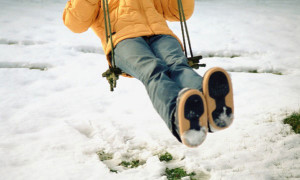Winter Skin Care Tips
If you live in an area with cool winters, you may have noticed your skin can become dry and chapped as the temperature falls. Robert A. Norman, DO, an osteopathic physician and dermatologist from Tampa, Florida, offers some tips on how to keep skin healthy all winter long.
6 Tips for Winter Skin Care
- Avoid hot showers and baths.
As tempting and as enjoyable as it is to jump into a hot shower on a cold winter day, don’t. “Bathing in hot water breaks down the lipid barriers in your skin, which causes a loss in moisture,” says Dr. Norman. Instead, he recommends taking warm showers, not hot, and to avoid staying in for an extended period of time. - Exfoliate.
“The top layer of skin cells are either dead or old and make your skin look dull,” says Dr. Norman. Exfoliating gets rid of the dead skin cells and reveals newer, healthier-looking skin. Dr. Norman recommends using a light exfoliate scrub, but to not over-exfoliate. How often you exfoliate depends on your skin type and the type of exfoliation treatment you use. - Moisturize differently.
Dr. Norman recommends using a heavier moisturizer in the winter that is oil-based, not water-based, to nourish skin from the inside and help balance natural oil production. “Make sure to grab an oil-based moisturizer with SPF, even when the sun isn’t out,” Dr. Norman adds. “UV rays that cause skin damage are present year-round, rain or shine.” He also recommends keeping a small bottle of moisturizer with you if you are going to be outdoors for most of the day, as your skin may dry out as the day goes on. - Use a humidifier.
In winter months, the lack of moisture in the air causes skin to crack and become itchy. “Humidifiers put moisture back into the air and prevent extreme dry skin,” says Dr. Norman. “They also enhance moisture absorption in the nose and assist with mucus secretions, which are important in preventing conditions like sinusitis, especially in the winter months.” - Bundle up in layers and take off wet clothes.
Wet clothes that are worn close to the skin can cause irritation and sores. Dr. Norman recommends dressing in layers, which will allow you to take clothes off when you experience overheating and sweating. - Stay hydrated.
“It’s important that you make sure to drink an adequate amount of fluids,” says Dr. Norman. “Staying hydrated is a key component of healthy skin.”
